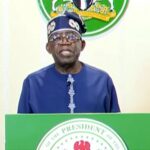The speech on Monday shows Tinubu is still searching for ways to cushion the economic effect of his inauguration day policy reform—fuel subsidy removal. It was another attempt to correct the policy mistake after receiving approval of N500 billion from the National Assembly to spend on 12 million poor households in the country. The policy also raised the ongoing debate about reviewing the social register, which looks like another black hole for a short-term policy.
Tinubu announced a change of plans for the approved N500 billion to be given to 12 million poor households in the country. He declared giving out loans worth N1 billion each to 75 enterprises that will provide good-paying jobs. He plans to spend N200 billion on agriculture and use N100 billion to buy CNG-fuelled buses. These will mostly go to those living in the cities close to the centre.
MSMEs will be optimistic as the remaining N125 billion will go to them, but only N50 billion will go towards a Conditional Grant to one million nano businesses, where around 1,300 businesses in 774 LGAs will be given N50,000 based on the assumption that the funds will be evenly distributed. However, if one divides 1,300 by 50 billion, it will only be around N38,500. Recall that the poor households were expected to get N48,000 in six months.
The announcement of a new minimum wage and general upward review will douse the tension of labour strikes, but it will be interesting to see how doctors will react after rejecting FG’s N25,000 allowance and 25 per cent salary increase last week.
The spending announcement is like attempting to stop the stomach bleeding from a gunshot wound by simply placing your hands over it. Taking the speech in isolation sounded reassuring, but we have repeatedly heard him repeat this statement. Tinubu’s problem with fuel subsidy removal is corruption within the system, but he is looking at it from a different perspective—from an idealist view.
One does not need to be a rocket scientist to know who benefits from fuel subsidy. If you want to know those who directly or indirectly benefit from the fuel subsidy policy, you should look at those suffering in the country now. Of course, this narrative is not new from a global perspective. As populist idealists use emotions and misrepresented facts to gain power, they promise the world but deliver an atlas: Trump, Bolsonaro, Boris Johnson and Buhari are recent examples, and we saw how they all ended up. After all, history shows pragmatists outlive idealists in politics.
Politically, raising people’s hopes and failing to deliver on those expectations often results in disappointment. So, rationally speaking, it is concerning to hear him make such an announcement after reiterating that his objective for subsidy removal was to redistribute the country’s wealth fairly instead of leaving it in the hands of a tiny elite—the elite of the elite. I say this because it is the kind of speech used by an idealist leader riding a populist agenda.
The speech used emotions to connect with the general public, presenting issues simply and relatable but deeply misguided. It was a clear division between the people and the vilified, faceless elite. He advocated for the interests of the common citizens against a perceived corrupt group. He tried to solve a complex problem—fighting the elite who benefit from fuel subsidy. He appealed to economic growth and small businesses and emphasised the country’s struggles. However, looking closely, the speech oversimplifies complex issues and exploits societal divisions.
Let’s be guided. Throughout history, there has never been a civilised society where one segment did not benefit from the labour of another. This pattern endures across ancient civilisations, the Renaissance era, the age of industrialisation, and even our digital age. Historical evidence consistently supports this reality, demonstrating that our progress is built upon the contributions and efforts of various parts of our society, which means an interdependent relationship between different groups is needed. Tinubu’s attack on a faceless elite is misleading. The alleged group of elite benefitting from fuel subsidy should not be above the law, and if they are corrupt, a legal process is designed to deal with them.
The speech was called ‘After darkness comes the glorious dawn’, which sounds disturbing. In all seriousness, people do not expect darkness in any form; they want to see the light they were promised in the Renewed Hope Agenda. Also, Tinubu’s proposed spending should have legal consequences. The lawmakers appropriated N500 billion to be shared with 12 million poor households but are now being proposed to be used for something different.
Using appropriated budget for something else seriously violates the constitution and the principles of responsible governance unless approved as fungible funds. It can lead to impeachment proceedings if gross misconduct is established, but this is conditional on a tough national assembly leadership, not a rubber stamp, where they can instigate investigations and oversight.
Nonetheless, as done by some public speakers, there is nothing wrong with being optimistic about Tinubu’s speech. But if you want to see how this ends, all you have to do is look at the beginning of Tinubu’s presidency. The amount of naira required to purchase a dollar has doubled due to devaluation and unified the exchange rate system. The headline inflation has pressured the interest rates to be raised for Nigerian bonds to be attractive enough for foreign investors to supply the dollars needed for the currency reforms. Fuel prices have tripled. The whole reform is turning into a mess.

 Join Daily Trust WhatsApp Community For Quick Access To News and Happenings Around You.
Join Daily Trust WhatsApp Community For Quick Access To News and Happenings Around You.


